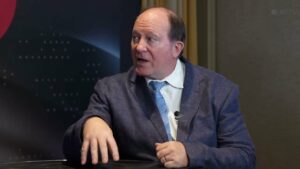US$89.6 Million Judgment
At issue in this case was whether Hector Davila Santos (“Davila“) had breached his fiduciary duty to First Silver Reserve Inc. (“First Silver“), a subsidiary of Canadian mining company First Majestic Silver Corp. (“First Majestic“), by having his wholly-owned company pursue a corporate opportunity to purchase the Bolanos mining property in Mexico (“Bolanos“). The court held that the opportunity to purchase Bolanos was that of First Silver’s and that, as First Silver’s former president, chief executive officer and director, Davila breached his fiduciary duty to First Silver by purchasing Bolanos. The decision is notable, not for any particularly unique legal propositions for which it stands, but rather for illustrating the potential scope of fiduciary liability as evidenced by the US$89.6 million judgment levelled against Davila and his co-defendant.
Background
Davila’s interest in Bolanos dated back to 1965 when he acquired his first claims in the area. The company through which he held such claims eventually declared bankruptcy and Bolanos was subsequently acquired by Grupo Mexico (“Grupo“) in 1993. A decade later, Grupo expressed an interest in selling Bolanos and Davila, on behalf of both First Silver and Minera El Pilon, S.A. de C.V. (“El Pilon“), a wholly-owned Mexican subsidiary of First Silver founded by Davila and for which he acted as a director, offered to purchase Bolanos for US$16 million.
Contemporaneously with his negotiations on behalf of El Pilon and First Silver for the purchase of Bolanos, and before the due diligence process with respect to such purchase was finalized, Davila sold his controlling interest in First Silver to First Majestic. A share purchase agreement was signed on April 3, 2006 and the purchase closed on May 30, 2006. Davila asserted at trial that, during the sales process, First Majestic (on its own behalf and on behalf of First Silver) rejected the opportunity to purchase Bolanos. The day after entering into the agreement with First Majestic for the sale of his First Silver shares, Davila wrote to Grupo, purportedly on behalf of El Pilon and First Silver, revoking all prior negotiations for the purchase of Bolanos. Among other reasons for the revocation, he cited First Majestic’s aforementioned supposed rejection of the opportunity to purchase Bolanos.
The full extent of First Silver’s interest in Bolanos (including the negotiations conducted on its behalf by Davila) was not revealed to First Majestic until the end of July of 2006, roughly two months after it had purchased Davila’s First Silver shares. Shortly thereafter, a decision was made by First Majestic to pursue Bolanos and to prevent Davila from doing the same. Throughout the spring and summer of 2006 both First Majestic and Davila moved to acquire Bolanos. In mid-September of 2006, Grupo informed both parties that it would not sell to either side until they had resolved their differences; something that First Majestic and Davila were ultimately unable to do. However, First Majestic continued to communicate with Grupo throughout the remainder of 2006 and early 2007 and, as late as March of 2007, met with Grupo to express its continued interest in Bolanos and to discuss a possible joint venture with Davila as a way out of the deadlock. Despite this, and unbeknownst to First Majestic, in April of 2007, Davila and Grupo re-entered negotiations and a purchase agreement was signed on August 7, 2007. The action by the plaintiffs against Davila for breach of his fiduciary duty was commenced on November 30, 2007.
The Decision
In his judgment, Mr. Justice Myers held that purchasing Bolanos was indeed a corporate opportunity that belonged to First Silver and, as such, Davila breached his fiduciary duty to First Silver by effecting the purchase of Bolanos through a separate company that he owned and controlled notwithstanding that Davila was no longer associated with First Silver when he effected such purchase. Justice Myers drew a distinction between a company’s affirmative rejection of a corporate opportunity on the one hand, and its alleged failure to pursue such an opportunity with sufficient enthusiasm on the other. While the former scenario may allow a fiduciary to act on a corporate opportunity, the latter clearly does not.
With respect to the analysis of Davila’s fiduciary duty and the breach thereof, the judgment is not particularly noteworthy. Case law in this area has long been well-settled in Canada. What is noteworthy is the amount the court awarded to the plaintiffs. In determining the quantum of damages, Justice Myers relied heavily on the plaintiffs’ expert’s opinion which estimated the value of the lost opportunity to be $111 million. This amount was ultimately reduced to a damages award in favour of the plaintiffs for US$89.6 million to account for certain improvement costs borne by Davila and a 15% contingency factor. Minerales y Minas Mexicanas, S.A. de C.V., the company whose shares Davila acquired to indirectly purchase Bolanos, was held jointly and severally liable for Davila’s breach.
Key Takeaway
While the factual matrix involved was unique, the judgment serves as a reminder to directors, officers and their advisors of the potential monetary penalties to which fiduciaries may be exposed. A US$89.6 million judgment is large in any context, but is particularly so in a case in which such a figure is awarded based on the actions of an individual acting alone. Although an appeal has recently been filed by the defendants and it thus remains to be seen whether this sizeable award will be upheld, fiduciaries and their advisors should take heed of this decision and the scope of fiduciary liability that it represents.
The content of this article is intended to provide a general guide to the subject matter. Specialist advice should be sought about your specific circumstances.

















